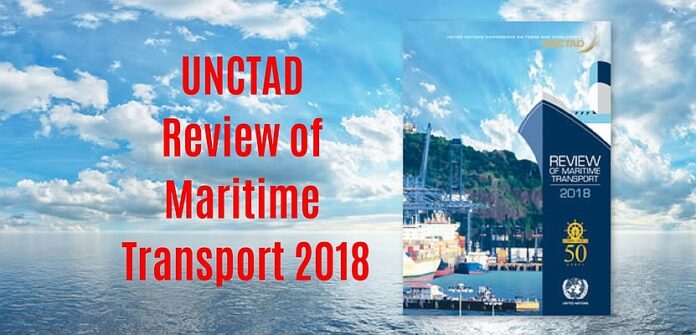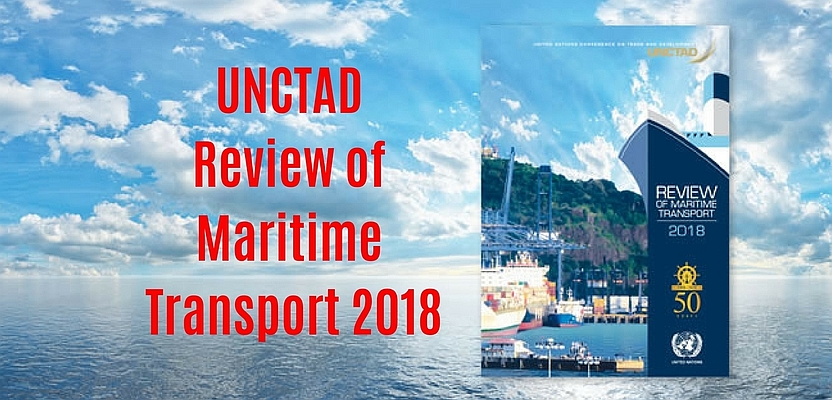
(www.MaritimeCyprus.com) The Review of Maritime Transport is a recurrent publication prepared by the United Nations Conference on Trade and Development (UNCTAD) secretariat since 1968 with the aim of fostering the transparency of maritime markets and analysing relevant developments. It remains the single, most important global review of the Maritime Industry.
Growing seaborne trade
Global seaborne trade is doing well, supported by the 2017 upswing in the world economy. Expanding at 4 per cent, the fastest growth in five years, global maritime trade gathered momentum and raised sentiment in the shipping industry. Total volumes reached 10.7 billion tons, reflecting an additional 411 million tons, nearly half of which were made of dry bulk commodities.
Uncertain outlook
While the prospects for seaborne trade are bright, downside risks such as increased inward-looking policies and the rise of trade protectionism are, nevertheless, weighing on the outlook. An immediate concern is the trade tensions between China and the United States of America, the world’s two largest economies, as well as those between Canada, Mexico, the United States and the European Union. Escalating trade frictions may lead to a trade war that could derail recovery, reshape global maritime trade patterns and dampen the outlook. Further, there are other factors driving uncertainty. Among others, these include the ongoing global energy transition, structural shifts in economies such as China, and shifts in global value chain development patterns.
Growth in world fleet capacity
After five years of decelerating growth, 2017 saw a small improvement in world fleet expansion. During the year, a total of 42 million gross tons were added to global tonnage, equivalent to a 3.3 per cent growth rate. This performance reflects both a slight upturn in new deliveries and a decline in demolition activity, except in the tanker market, where demolition activity picked up. The expansion in ship supply capacity was surpassed by faster growth in seaborne trade volumes, altering the market balance and supporting improved freight rates and earnings.
Improved balance between demand
Supported by stronger global demand, more manageable fleet-capacity growth and overall better market conditions, freight rate levels improved significantly in 2017, except for those of the tanker market. Container freight rate levels increased, with averages surpassing performance in 2016 and with profts in the container shipping industry reaching roughly $7 billion by the end of 2017. CMA CGM recorded the best operating results in the container shipping industry, with core earnings before interest and taxes reaching close to $1.58 billion, followed by Maersk Line, with gains of $700 million. Hapag-Lloyd ranked third, with gains amounting to some $480 million. The 2017 surge in bulk freight market resulted in gains for carriers that helped offset the depressed earnings of 2016. The tanker market remained under pressure, owing mainly to increased vessel supply capacity that outpaced demand growth and undermined freight rates.
Consolidation activity in liner
The liner shipping industry witnessed further consolidation through mergers and acquisitions and global alliance restructuring. Yet despite the global market concentration trend, UNCTAD observed growth in the average number of companies providing services per country between 2017 and 2018. This is the first increase since UNCTAD started monitoring capacity deployment in 2004. Put differently, several individual carriers – both inside and outside alliances – expanded their
networks to a larger number of countries. This more than offset the reduction in the global number of companies after the takeovers and mergers. However, this was not a broad-based trend. The number of operators servicing several small island developing States and vulnerable economies decreased between 2017 and 2018.
For more details on the above as well as more maritime matters, click on below image to download full report.
Source: United Nations Conference on Trade and Development (UNCTAD)















